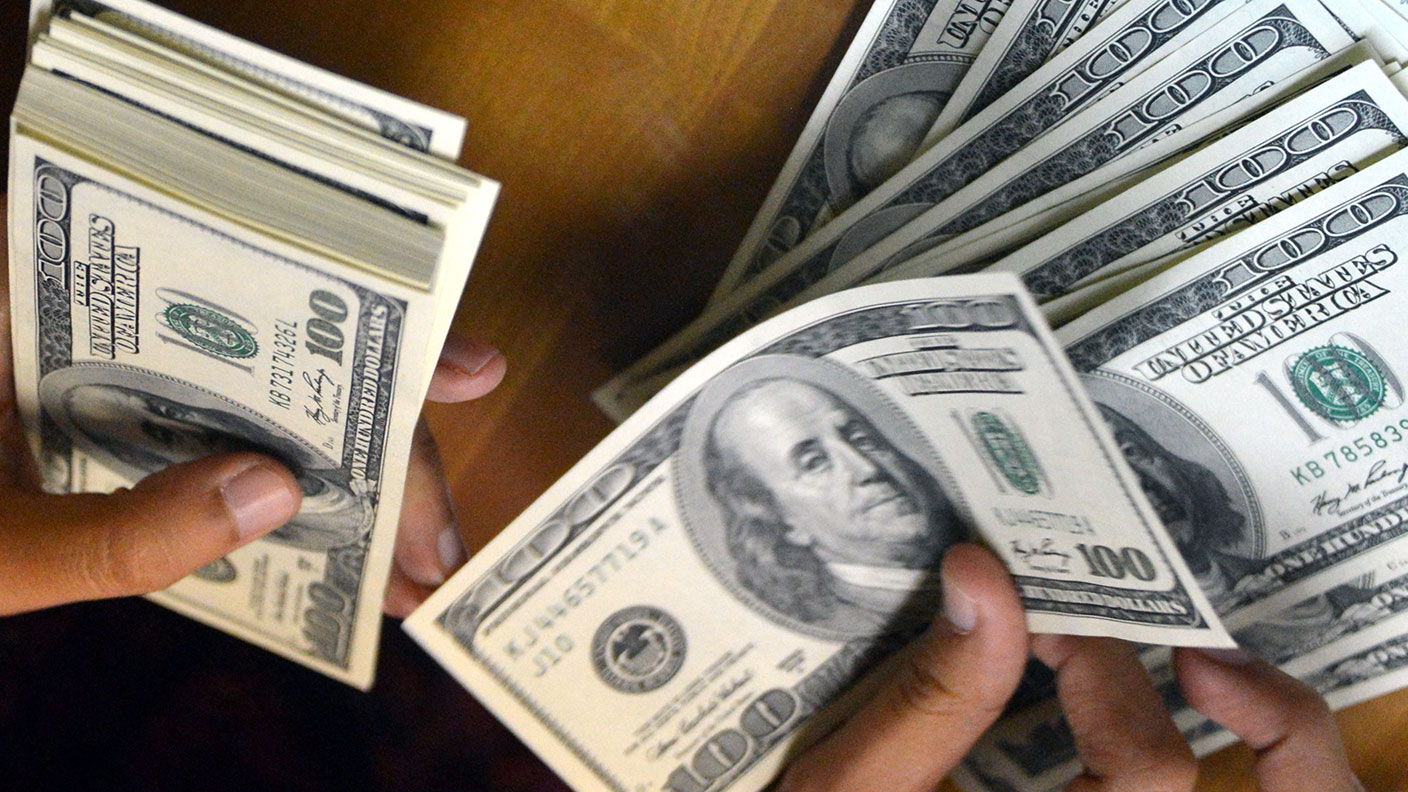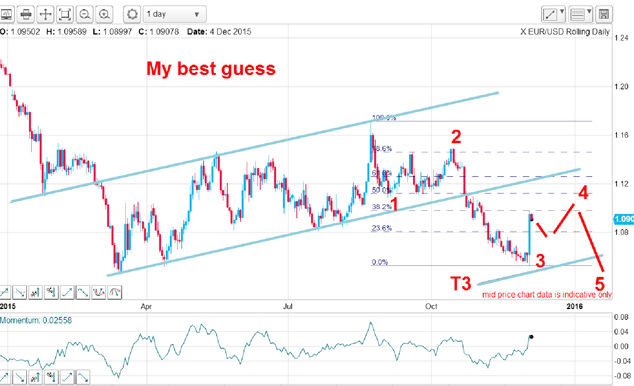Get the latest financial news, insights and expert analysis from our award-winning MoneyWeek team, to help you understand what really matters when it comes to your finances.
You are now subscribed
Your newsletter sign-up was successful
Want to add more newsletters?

Twice daily
MoneyWeek
Get the latest financial news, insights and expert analysis from our award-winning MoneyWeek team, to help you understand what really matters when it comes to your finances.

Four times a week
Look After My Bills
Sign up to our free money-saving newsletter, filled with the latest news and expert advice to help you find the best tips and deals for managing your bills. Start saving today!
When risk appetite is high, sterling usually does well. But this time the pound "has not been invited to the party", says Deborah Hyde on Citywire.co.uk. In fact, it's "in the global doghouse", says Jim Wood-Smith of Williams de Bro, hitting a five-month low of around £0.90 to the euro and falling by 2.6% against the dollar last week.
Sentiment was hurt by the Bank of England's (BOE) announcement that it might lower the interest rate that it pays on deposits that banks hold with it; the idea was taken as a sign that the policymakers think quantitative easing (QE) isn't working as well as they hoped. In turn, this also increases the odds of interest rates staying at record lows for a long time.
The currencies of other economies still engaged in QE have also been weak, including the dollar. But while most central banks have been hinting at tightening, the BOE recently increased the amount of money it's printing to throw at the economy.
MoneyWeek
Subscribe to MoneyWeek today and get your first six magazine issues absolutely FREE

Sign up to Money Morning
Don't miss the latest investment and personal finances news, market analysis, plus money-saving tips with our free twice-daily newsletter
Don't miss the latest investment and personal finances news, market analysis, plus money-saving tips with our free twice-daily newsletter
Given the mounting expectations of low interest rates being maintained, sterling could become a funding currency for the carry trade (meaning it would be sold to fund the purchase of higher-yielding assets elsewhere, as the yen was until recently), says Melinda Burgess of RBS. That development would put further downward pressure on sterling as the global economy improves.
Meanwhile, the BOE has compounded jitters by suggesting that, following the financial crisis, foreign investors may have become less willing to fund our current-account deficit. This would imply a lower long-term exchange rate for the pound. Analysts at Citigroup and BNP Paribas expect the pound to slide to parity with the euro.
Get the latest financial news, insights and expert analysis from our award-winning MoneyWeek team, to help you understand what really matters when it comes to your finances.
MoneyWeek is written by a team of experienced and award-winning journalists, plus expert columnists. As well as daily digital news and features, MoneyWeek also publishes a weekly magazine, covering investing and personal finance. From share tips, pensions, gold to practical investment tips - we provide a round-up to help you make money and keep it.
-
 Should you buy an active ETF?
Should you buy an active ETF?ETFs are often mischaracterised as passive products, but they can be a convenient way to add active management to your portfolio
-
 Power up your pension before 5 April – easy ways to save before the tax year end
Power up your pension before 5 April – easy ways to save before the tax year endWith the end of the tax year looming, pension savers currently have a window to review and maximise what’s going into their retirement funds – we look at how
-
 How the US dollar standard is now suffocating the global economy
How the US dollar standard is now suffocating the global economyNews In times of crisis, everyone wants cash. But not just any cash – they want the US dollar. John Stepek explains why the rush for dollars is putting a big dent in an already fragile global economy.
-
 The US dollar’s days as the world's most important currency are numbered – it’s official
The US dollar’s days as the world's most important currency are numbered – it’s officialFeatures Central bankers reckon the dollar's days as the world’s reserve currency are numbered. But what could replace it? John Stepek takes a look at Bank of England governor Mark Carney's cunning plan.
-
 Is a central bank cartel at work in the markets?
Is a central bank cartel at work in the markets?Features John C Burford examines the euro chart, and asks whether there is a central bank conspiracy at play.
-
How to profit from central bank shenanigans
Features It’s a race to the bottom for the world’s central banks, with the European Central Bank cutting its main interest rate, following more monetary easing from the Bank of England and a rate cut from the People's Bank of China. Tim Bennett explains how you can profit.

